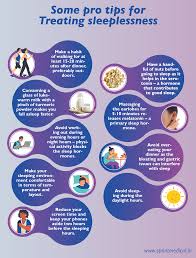The Importance of Mental Health Treatment
Mental health treatment is a crucial aspect of overall well-being that often goes overlooked. Just as we prioritize our physical health by visiting doctors and specialists, it’s equally important to take care of our mental health through proper treatment and support.
Seeking mental health treatment is not a sign of weakness; rather, it is a proactive step towards better emotional and psychological well-being. Just as we would seek help for a physical ailment, addressing mental health concerns early on can prevent them from escalating into more serious conditions.
There are various forms of mental health treatment available, ranging from therapy and counseling to medication and holistic approaches. Therapy, such as cognitive behavioral therapy (CBT) or psychotherapy, can help individuals address underlying issues, develop coping strategies, and improve their overall mental wellness.
Medication prescribed by qualified healthcare professionals can also play a significant role in managing certain mental health conditions, such as depression or anxiety disorders. It’s essential to work closely with healthcare providers to find the right balance of medication and therapy for each individual’s unique needs.
In addition to traditional forms of treatment, holistic approaches like mindfulness practices, meditation, exercise, and healthy lifestyle habits can complement formal treatment methods and contribute to overall well-being. These practices can help individuals manage stress, improve mood, and enhance their quality of life.
Remember that mental health treatment is not one-size-fits-all; what works for one person may not work for another. It’s essential to explore different options under the guidance of qualified professionals to find the most effective approach for your specific needs.
By prioritizing mental health treatment and seeking support when needed, individuals can take control of their emotional well-being and lead healthier, more fulfilling lives.
Understanding Mental Health Treatment: Answers to Common Questions
- What types of mental health treatment are available?
- How do I know if I need mental health treatment?
- What is the difference between therapy and medication for mental health treatment?
- How can I find a qualified mental health professional for treatment?
- Are there alternative or complementary approaches to traditional mental health treatment?
What types of mental health treatment are available?
Various types of mental health treatment are available to address a wide range of mental health concerns. Common forms of treatment include therapy or counseling, medication management, support groups, and holistic approaches such as mindfulness practices and relaxation techniques. Therapy options may include cognitive behavioral therapy (CBT), psychotherapy, and dialectical behavior therapy (DBT), among others. Medication prescribed by healthcare professionals can help manage symptoms of conditions like depression, anxiety, and bipolar disorder. Support groups provide individuals with a sense of community and understanding, while holistic approaches focus on overall well-being through activities like yoga, meditation, and exercise. It’s important to consult with healthcare providers to determine the most suitable treatment plan based on individual needs and preferences.
How do I know if I need mental health treatment?
Recognizing the need for mental health treatment can be a challenging but essential step towards improving your well-being. If you find yourself struggling to cope with daily stressors, experiencing persistent feelings of sadness, anxiety, or hopelessness, having difficulty functioning at work or in relationships, or engaging in harmful behaviors such as substance abuse, it may be time to consider seeking professional help. Trust your instincts and listen to your body and mind; if you feel like something is not quite right or if your usual coping mechanisms are no longer effective, reaching out to a mental health provider can provide valuable support and guidance on your journey towards healing and recovery.
What is the difference between therapy and medication for mental health treatment?
When considering mental health treatment, it’s important to understand the difference between therapy and medication. Therapy, such as counseling or cognitive behavioral therapy, involves talking to a trained professional to address underlying issues, develop coping strategies, and work through emotional challenges. Therapy focuses on exploring thoughts, emotions, and behaviors to promote positive change and improve overall mental well-being. On the other hand, medication prescribed by healthcare providers can help manage symptoms of certain mental health conditions by restoring chemical imbalances in the brain. While therapy addresses the root causes of mental health issues through talk-based interventions, medication targets specific symptoms to alleviate distress. In many cases, a combination of therapy and medication may be recommended for comprehensive treatment that addresses both the psychological and biological aspects of mental health concerns.
How can I find a qualified mental health professional for treatment?
When seeking a qualified mental health professional for treatment, it is essential to start by researching reputable sources such as psychology licensing boards, professional organizations, or mental health clinics in your area. You can also ask for recommendations from your primary care physician, friends, or family members who have had positive experiences with mental health professionals. Consider the specific expertise and approach you are looking for in a therapist or counselor, whether it be cognitive behavioral therapy, psychotherapy, or specialized treatment for certain conditions like anxiety or depression. It’s crucial to schedule an initial consultation to assess the therapist’s qualifications, experience, and compatibility with your needs and goals before committing to ongoing treatment.
Are there alternative or complementary approaches to traditional mental health treatment?
Many individuals wonder about alternative or complementary approaches to traditional mental health treatment. While therapy and medication are commonly used methods, there are indeed alternative options that can complement or enhance traditional treatment. Practices such as mindfulness meditation, yoga, art therapy, acupuncture, and herbal supplements have shown promising results in improving mental health symptoms and overall well-being. These complementary approaches focus on holistic healing, addressing the mind-body connection and promoting relaxation, stress reduction, and emotional balance. It’s essential to consult with mental health professionals to explore these alternative options and determine the most suitable combination of treatments for individual needs.



